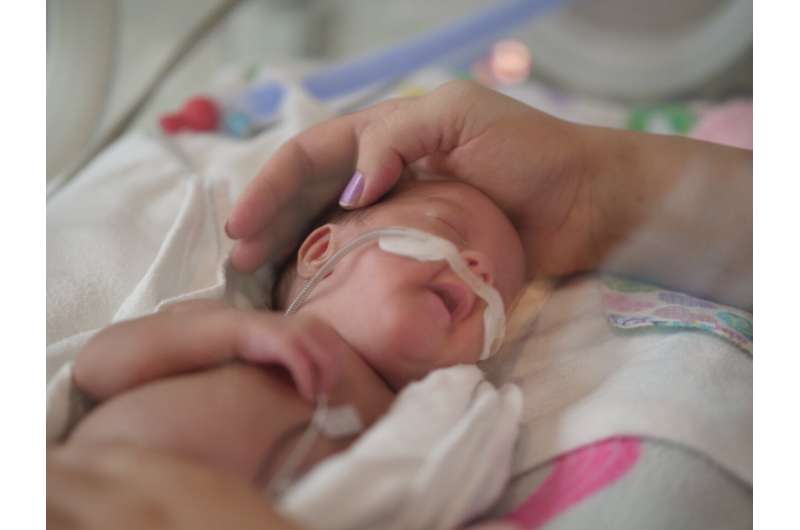
A 25-year study led by the Royal Women’s Hospital in Melbourne has found that the number of premature babies surviving without disability has increased by 20 percent.
Since the early 1990s, neonatology researchers have tracked the health of preterm babies born up to four months too early as part of the Victorian Infant Collaborative Study (VICS).
New data shows 42 percent of the “extremely preterm” babies born in 1991/92 did not develop a major neurodevelopmental disability—this number rose to 62 percent for the those born in 2016/17. Experts put the improvements down to three things:
- Increased treatment with a type of steroids which are given to women prior to premature birth and which help the unborn baby’s lungs to develop more quickly;
- The introduction of surfactant—a liquid delivered into the babies’ lungs to help maintain inflation, which became common practice from 1991; and
- Increased clinical motivation to give babies born at earlier gestation a chance by offering them intensive care after birth.
Neonatologist and lead researcher at the Royal Women’s Hospital, Professor Jeanie Cheong, said the findings of this study are noteworthy for parents of premature babies and clinicians around the world.
“When a baby is born too early, they face a number of significant challenges, often with their lungs and brain development, and these challenges increase the more premature they are. The two-year-olds we followed up were born up to four months before the expected pregnancy duration of 40 weeks,” said Professor Cheong.
“Our research gives reassurance to families facing the prospect of birthing a baby prematurely that neonatal care is constantly improving—and their baby has a very good chance of survival without having major problems with their thinking, talking, walking, seeing or hearing.
“As clinicians, we can be confident that the measures we are taking to keep our patients alive, which can be extensive in very premature infants, are not having a major adverse impact on their quality of life.”
VICS research examines many other aspects of neonatal health—including bone, heart, and brain—involving follow-ups with hundreds of toddlers, children and adults born premature—the oldest participants born during 1991 and 1992 were last assessed when they were 25 years old.
Source: Read Full Article